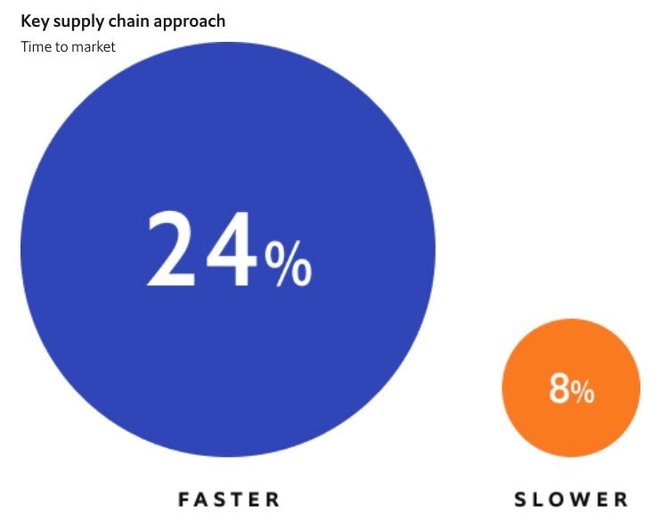DP World Report: AI Vital in 98% of Supply Chain ops

AI has become an indispensable tool for 98% of executives, revolutionising at least one aspect of their supply chain operations, a new study from DP World shows.
The global logistics company’s Trade in Transition report shows that, in response to concerns over escalating supply-chain costs, 34% of companies are leveraging AI tech control trade expenses.
The report says companies are realising that incorporating AI into supply-chain management is empowering organisations to reduce logistics costs and inventory levels and increase service levels.
It also shines a light on inventory trends in an uncertain market. It says just-in-time supply chains “lie idle”, and that the in-favour just-in-case inventory model “is being refined, as companies strive to strike the right balance between building resilience and managing costs”.
It also showed that 34% of executives are using digital tools to improve inventory management, which companies see as being the best strategy for cutting supply chain costs. Meanwhile, more than a third (35%) are employing AI to optimise inventory levels, which the report says “emphasises the rising reliance on technological solutions”.
On inventory management, the report says: “With companies losing around US$1.8tn annually due to inventory issues, efficient inventory management is crucial.
“Solving these issues could potentially lead to a significant increase in sales, showcasing the direct impact of streamlined inventory on business growth.”
However, the report cautions that this “needs to be balanced against business resilience strategies as another black swan event could further impede businesses with significantly reduced inventories”.
DP World: Supply chains moving to strategy of fewer suppliers
In terms of wider supply chain trends, the DP World report says that, while executives still largely favour supply chain diversification, a wave of supply chain reconfigurations are underway, as companies opt for fewer supplier partnerships.
It points out that, in 2023, almost half (45%) of executives favoured diversification as the primary supply-chain strategy but that 26% of companies opted to work with fewer suppliers – up by 16% on 2022.
“On the face of it, this is counterintuitive,” the report says. “On the one hand, as more companies set up dual supply chains, the diversification of suppliers increases.
“Yet on the other hand, businesses focused more on capacity building are favouring working with fewer suppliers.”
It says that this trend towards streamlined supplier engagement is “consistent across regions and sectors, reflecting a structural evolution in Looking forwards into 2024, the report says transport costs are likely to be the leading obstacle for firms aiming to increase exports.
The report concludes that “navigating fluctuating costs, logistical deficits and changing consumer behaviour remains an essential facet of contemporary trade and commerce”.
Echoing these results, a recent Gartner survey showed that half of supply chain leaders plan to embrace Gen AI in the coming 12 months, and that a further 14% are already implementing such solutions.
******
- Check out the latest edition of Supply Chain Digital and also sign up to our global conference series: Procurement & Supply Chain 2024.
Supply Chain Digital is a BizClik brand.

- Arvato & Microsoft: Developing the Warehouse of the FutureDigital Supply Chain
- KPMG International: The Biggest Risks Hitting BusinessesSupply Chain Risk Management
- GEP Unveils AI-Powered Total Orchestration SolutionDigital Supply Chain
- Why Rail and Intermodal Remain Integral to Supply ChainsLogistics






